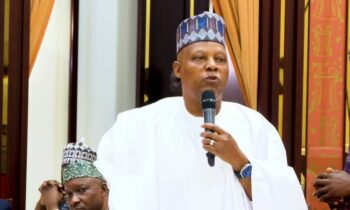With global energy markets upended, the G7 group of the world’s most industrialized nations is considering endorsing new upstream investment in natural gas despite climate concerns, a draft document seen by Reuters showed on Thursday.
Nigeria may however benefit from this plan as foreign investors may find their way back to the country. Nigeria is endowed with huge natural gas resources which it currently needs investors to tap into. As matter of fact, it has declared 2021 to 2030 as a decade of gas.
Mele Kyari , group chief executive officer of the Nigerian National Petroleum Company,(NNPC) stated that Nigeria’s domestic gas infrastructure network has an existing capacity to transport about 6.9 Billion Standard Cubic Feet (BCF) of gas to support power generation and gas-based industries.
He pointed out that the country’s huge investment in gas infrastructure is hinged on its growing natural gas reserves, thus supporting the nation’s aspiration to create Africa’s biggest industrial hub powered by low-carbon energy.
“NNPC is taking advantage of Nigeria’s huge natural gas reserves of over 200 Trillion Cubic Feet (TCF) with a potential to grow to 600 Trillion Cubic Feet (TCF) as more investment is expected due to the recent resolution of the Production Sharing Contract (PSC) disputes with partners.
This significant reserve will serve as a low-carbon energy alternative that will support growth in the power and industrial sectors, address energy poverty, reduce carbon-footprint and create more employment opportunities,” he affirmed.
According to him, the NNPC was playing a leading role in the realisation of the Federal Government’s National Gas Expansion Programme, which seeks to deepen natural gas utilisation as an alternative transportation fuel, and an important feedstock for the development of gas-based industries.
“We are working assiduously to ensure timely delivery of major domestic gas pipeline infrastructure projects including the Abuja-Kaduna-Kano gas pipeline corridor and associated power plants.
The energy and climate change ministers of the G7 members—Canada, France, Germany, Italy, Japan, the UK, and the U.S.—are holding a summit in Japan next week, at which they are expected to discuss ways to reduce emissions in the face of more pressing energy security issues.
According to the draft document, the ministers will say that new upstream investment in natural gas supply will be needed to address energy security after the Russian invasion of Ukraine.
Utah legislators are fighting the removal of a power plant
“In this context, in this particular contingency, we recognize the need for necessary upstream investments in LNG (liquefied natural gas) and natural gas in line with our climate objectives and commitments,” reads the draft statement seen by Reuters.
The draft is not the final draft of the communique to be adopted and could still change until the summit, which Japan will host on April 15 and 16.
Major European economies, including the biggest, Germany, have seen first-hand the need for natural gas supply that’s not coming via pipelines from Russia. The U.S. has been sending record volumes of LNG to Europe over the past year as prices surged following the Russian invasion of Ukraine and as the U.S. pledged to help its European allies with gas deliveries.
Despite protests from environmentalists, many governments and policymakers have recognized the need to ensure a reliable and stable gas supply.
The World Bank could now be open to funding some gas projects, although it had pledged that it would stop funding upstream oil and gas projects after 2019.
The World Bank could be open to funding gas projects in Mozambique to ensure greater energy access if the costs are the cheapest among energy sources, Victoria Kwakwa, World Bank Vice President for Eastern and Southern Africa, told Bloomberg in an interview last month.
Back in 2017, the World Bank Group said it would no longer finance upstream oil and gas after 2019. But the group noted that “In exceptional circumstances, consideration will be given to financing upstream gas in the poorest countries where there is a clear benefit in terms of energy access for the poor and the project fits within the countries’ Paris Agreement commitments




